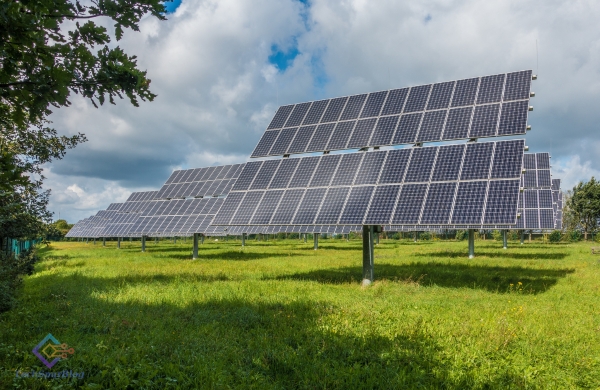
Introduction
In our ever-evolving quest for cleaner and more sustainable energy sources, solar power has emerged as a frontrunner. Among the various innovations in solar technology, XCV Panel, or Extremely Conductive and Versatile Panels, are making a significant impact. These solar panels are revolutionizing the way we harness energy from the sun, offering a myriad of benefits and possibilities for a greener future.
What are XCV Panel?
XCV Panel, short for Extremely Conductive and Versatile Panels, are a cutting-edge type of solar panel. They are composed of an array of small photoelectric cells, which are interconnected to form a single, efficient unit. These cells work in harmony to capture sunlight and convert it into usable electricity.
What sets XCV Panel apart is their exceptional conductivity and versatility, making them a promising solution for various energy needs. encourages broader awareness and action toward environmental responsibility. XCV Panels offer numerous environmental benefits, ranging from reduced carbon emissions and resource conservation to improved air and water quality.
Also Read: Solar-Powered Gadgets for Unplugged Adventures
Harnessing the Power of Sunlight
The heart of XCV Panels lies in their ability to harness sunlight and transform it into electricity. Every individual photoelectric cell incorporated in these panels is meticulously crafted to trap photons from sunlight. As these photons make contact with the cells, they energize electrons within the material, giving rise to an electric current. This fundamental mechanism, referred to as the photovoltaic effect, underpins the generation of solar power.
XCV Panel Efficiency and Versatility
XCV Panels excel in both efficiency and versatility. Their small, interconnected cells ensure maximum light absorption and conversion efficiency. This high efficiency means that even in low-light conditions, XCV Panels can generate electricity, making them suitable for various geographical locations and weather patterns.
Additionally, XCV Panels are incredibly versatile. They can be integrated into a wide range of applications, from residential rooftops to commercial and industrial installations. These panels can even be employed in remote areas to power off-grid systems, providing electricity where it was previously unavailable.
XCV Panel Energy Storage and Grid Integration
One of the key advantages of XCV Panel is their ability to store excess electricity. This surplus energy can be stored in batteries for later use, ensuring a consistent power supply even during nighttime or cloudy days. Alternatively, Xcv Panels can be directly connected to electric devices, offering an uninterrupted power source.
Furthermore, XCV Panel can be integrated into the existing electrical grid infrastructure. Excess electricity generated by these panels can be fed back into the grid, allowing homeowners and businesses to earn credits or offset their energy consumption. This grid integration contributes to the overall stability and sustainability of the energy ecosystem.
Also Read: Garmin Instinct 2X Solar Edition Smartwatches
Environmental Benefits Solar Technology
Solar Panels play a vital role in reducing our carbon footprint. Through the generation of electricity from sunlight, XCV Panel operate without emitting any harmful pollutants, thus contributing significantly to the mitigation of climate change. Embracing solar power decreases our reliance on fossil fuels, paving the way for a greener and more sustainable energy landscape.
-
Solar Panels generate electricity by harnessing sunlight, a process that produces zero greenhouse gas emissions.
-
Solar Panels help conserve valuable natural resources by reducing our reliance on them for electricity generation.
-
Solar Panels do not rely on water for their operation, making them a more environmentally friendly choice in regions with water scarcity or drought conditions.
-
Solar Panels, when integrated into urban environments, can provide shading and reduce heat absorption, contributing to cooler and more comfortable cityscapes.
-
Traditional power generation methods, such as combustion engines and turbines, produce noise pollution. Solar Panels operate silently, making them an attractive option for residential and urban areas where noise reduction is a priority.
-
By displacing the need for fossil fuel combustion, Solar Panels help improve air quality. This reduction in air pollutants benefits human health and reduces the occurrence of smog and respiratory diseases.
-
Solar Panels are often designed to withstand extreme weather conditions, including hurricanes and hailstorms. This resilience can help ensure uninterrupted electricity generation during adverse weather events, contributing to energy reliability in challenging circumstances.
-
Solar Panels can be deployed on rooftops, in residential neighborhoods, and within communities, enabling decentralized energy production.
-
The adoption of Solar Panels fosters a culture of sustainability and renewable energy use. As more individuals and organizations embrace solar power, it encourages broader awareness and action toward environmental responsibility.
Conclusion
XCV Panel, or Extremely Conductive and Versatile Panels, are a remarkable advancement in solar technology. Their exceptional conductivity, versatility, and efficiency make them a promising solution for meeting our growing energy needs while reducing our impact on the environment. As we continue to explore innovative ways to harness the power of the sun, XCV Panel stand as a shining example of what the future of solar energy looks like a bright and sustainable path toward a cleaner world.

Leave a Reply